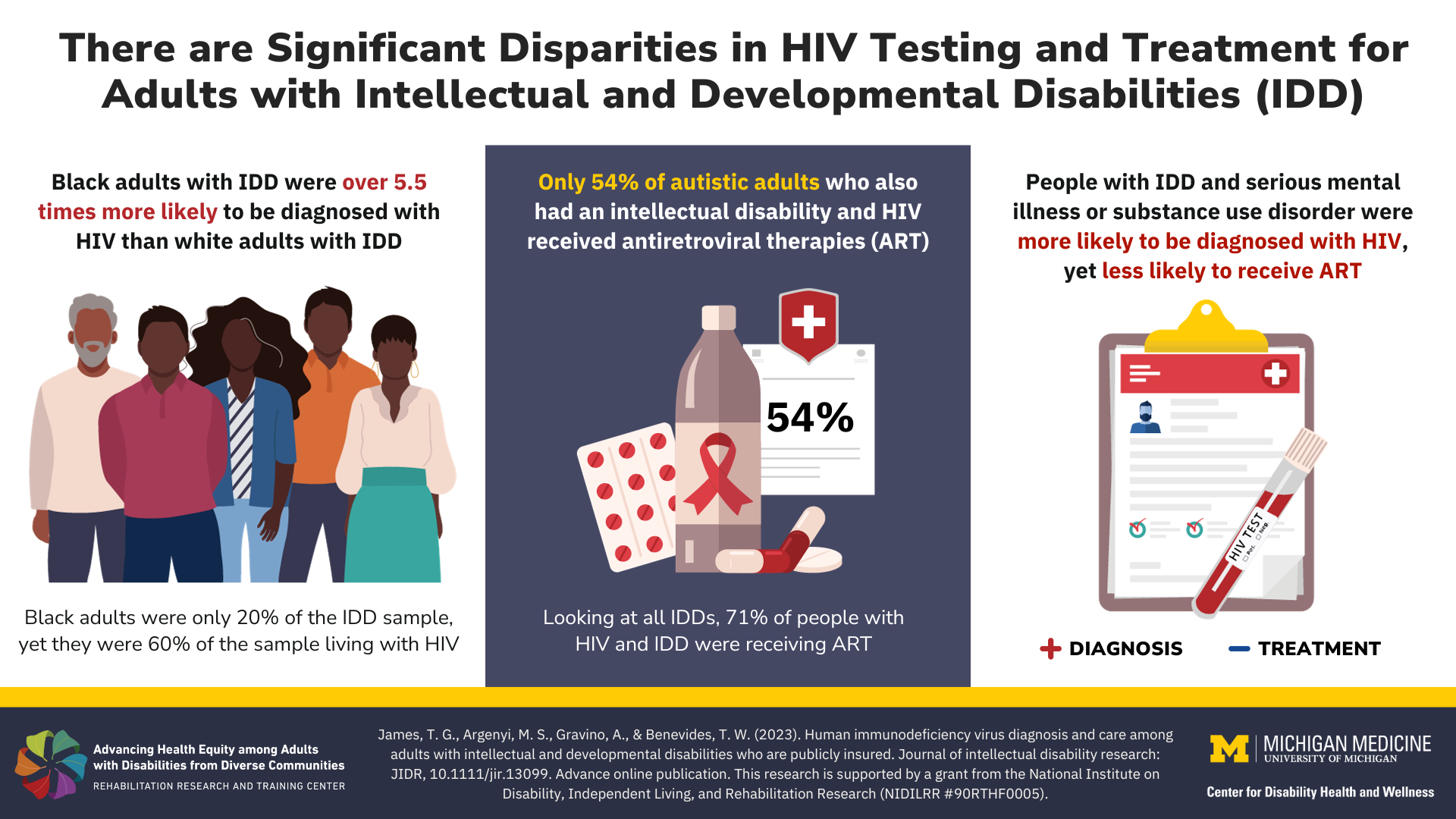Inequities in HIV testing, diagnosis and care for people with intellectual and developmental disabilities
A recent, multi-institutional publication, between U-M and Augusta University shared results of one of the largest epidemiological study on HIV testing and treatment among publicly insured adults with intellectual and developmental disability (IDD).
People with disabilities are often at higher risk for exposure to HIV due to barriers in engaging healthcare and other systemic factors and are thus considered a priority for prevention and testing efforts. However, these efforts don’t always extend to people with intellectual disabilities due to the perception that people with intellectual disabilities are mostly asexual.

Researchers from the University of Michigan Center for Disability Health and Wellness conducted one of the largest epidemiological studies of individuals with intellectual and developmental disabilities to closely examine where the gaps in HIV care lie and found large disparities in care for Black patients as well as for patients with autism and co-occurring intellectual disabilities.
“There is a large misunderstanding that patients with intellectual disabilities are asexual and therefore don’t require HIV testing or education,” said Tyler G. James, PhD, an assistant professor of family medicine at U-M Medical School, and lead author on the study.
To read the full article, please visit the Michigan Health Blog.
A fully accessible PDF of the visual abstract is available here.
